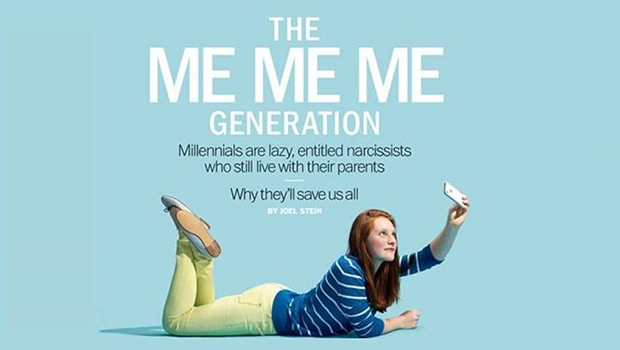Let’s say you assume that the concept of a “digital native” is someone who mostly grew up in the age of the Internet and, more specifically, Google (which was an early organizing force of the Internet). Google first got big around 1996-1998 ish, so pretty much anyone born after 1982-1983 was a teenager as the Internet (anyone remember “Dogpile?”) started to rise. That’s essentially the same time frame for millennials. It would stand to reason, then, that if you have an open social media / digital marketing-type job in your organization, you should chase a millennial. I mean, they must do those kind of jobs better than someone in their 40s/50s, right?
Well, maybe — but there’s also something else you need to think about.
Most people learn the Internet through interactions with friends; that’s a very different look/context than interactions with businesses or clients.
Most companies naturally recruit millennials to fill positions that rely heavily on hopscotching through the digital social realm. That’s a mistake, says William Ward, Ph.D., because many digital natives used Facebook, Instagram, Twitter, and the like, strictly for maintaining connections to friends.
In fact, one in ten young people are rejected from a job because of their social presence on the web. “They are missing the bigger picture on how to use social media to help businesses meet their goals,” says Ward, social media professor at Syracuse and Hootsuite’s director of educational strategy.
That’s kind of a mess, because some people (like McKinsey) believe that social media adds $1.3 trillion to the economy and, apparently, 90 percent of all jobs filled in the next few years will require some type of communication technology as part of them. Following the bouncing ball, then:
- People need to fill these types of jobs with talented people.
- They make the assumption that maybe millennials will do well in these roles.
- Millennials know how to re-gram their friends’ party shots, but they don’t know anything about what a business needs to do on there.
- KA-BOOM.
And of course, the blind can lead the blind too:
After graduating, Ward says, they often land in a job that provides no training and no one telling them how to meet professional objectives, despite the potential motherlode of research and analytics that social media provides. “It’s a really different skill set,” he says.
I’d also add: no one really fully understands how to make money off social media, and many aren’t sure whether it’s even supposed to do that — or be an engagement platform or traffic driver. Part of this is because “social media,” as a concept, is still fairly new — that job title didn’t exist even in 2006 for most companies. I know a ton of companies — and some really big, successful ones — who just hand that stuff over to the interns. Now, you can read that last sentence and think, “Well, if the company is making money and the intern is running social, maybe companies don’t really need a nuanced social strategy.” That might be true — you might be right there.
The flip side of that argument, though, is that oftentimes some of the people who would be best for your organization — really curious, innate learner-type people — are going to be the same types of people interested in social media. If you’re active there, you can kind of indirectly court them by showing them that you have some idea how the space is supposed to work; believe me, a smart millennial can determine pretty quickly when a company has no clue on the digital side.
So follow that bouncing ball:
- You want good people.
- Good, smart young people often do engage with social
- You need to seem smart / logical / innovative on there to get their attention amidst a stream of information.
- But you can’t sound smart because you haven’t hired them yet!
- Ka-Boom.
Simplistic, yes — but also very true at a lot of places.
Our hiring process sucks in America, and it’s often even worse in the marketing space (where social often falls). There’s not necessarily any type of quick fix or anything — but just because you got some cool young person with 500 followers on Twitter, that doesn’t necessarily mean you have a digital strategy in place.
Say it loud and say it proud: interacting with friends and family on Facebook is not the same as using social media for competitive business advantage.
